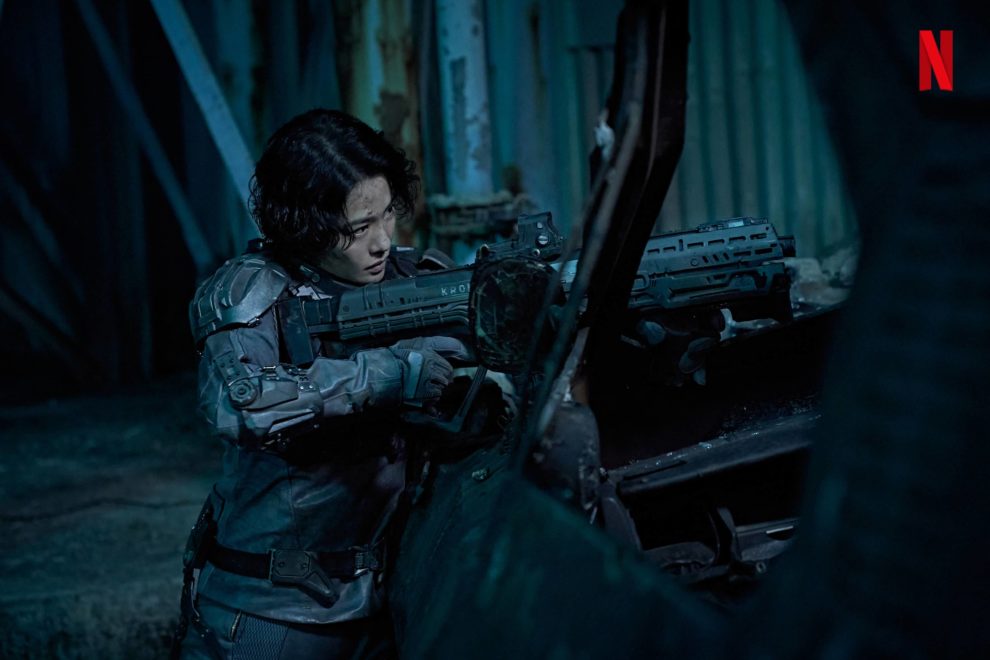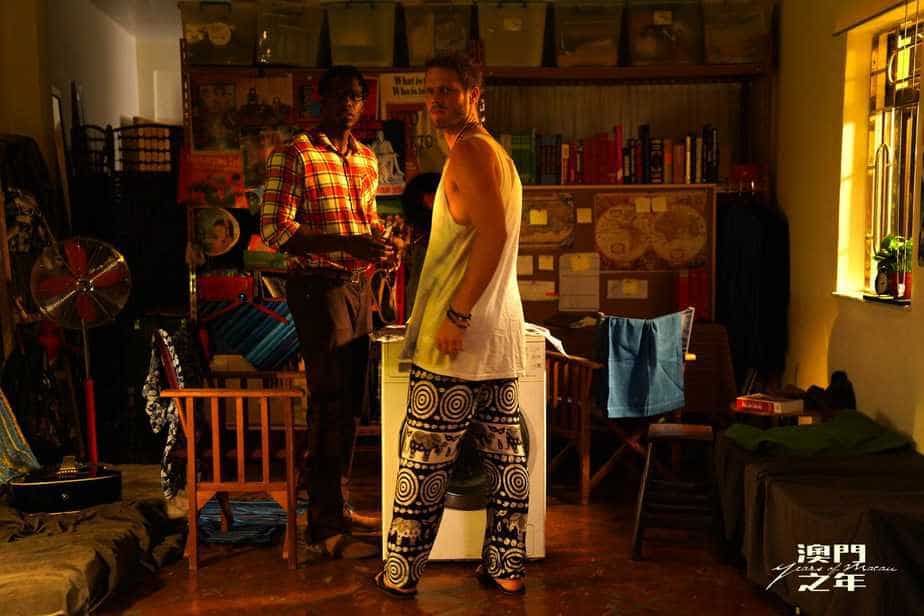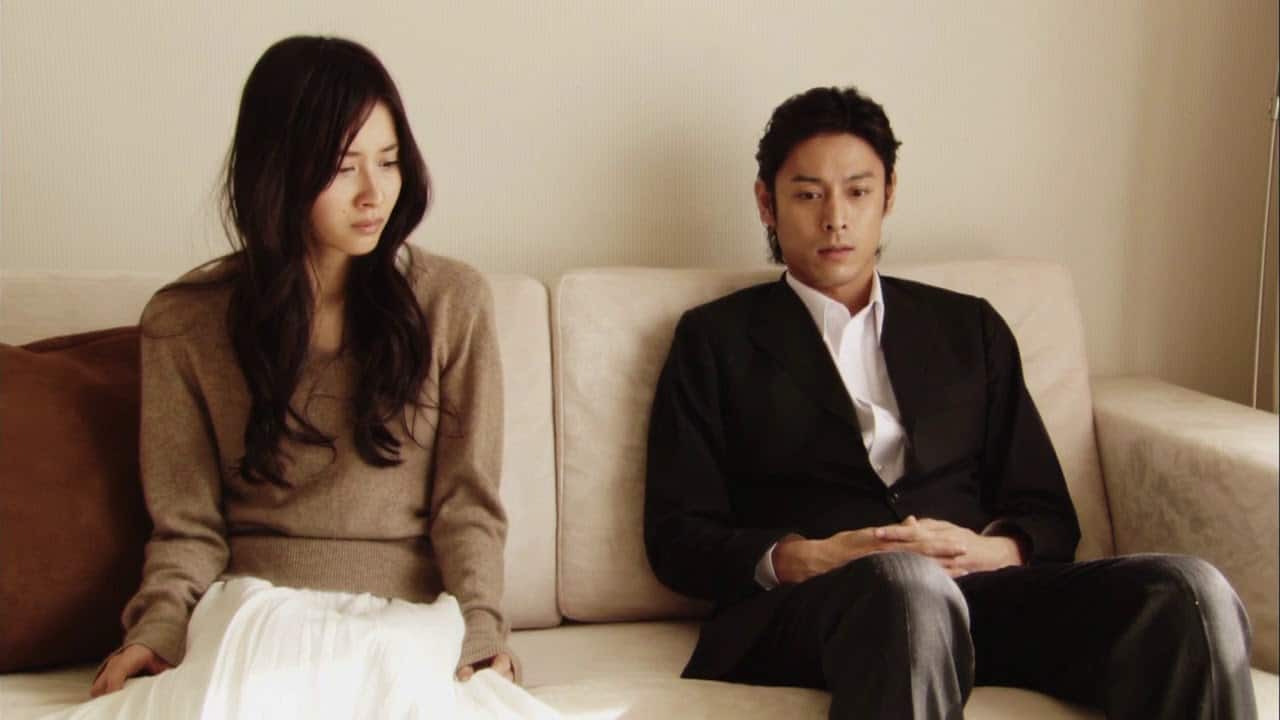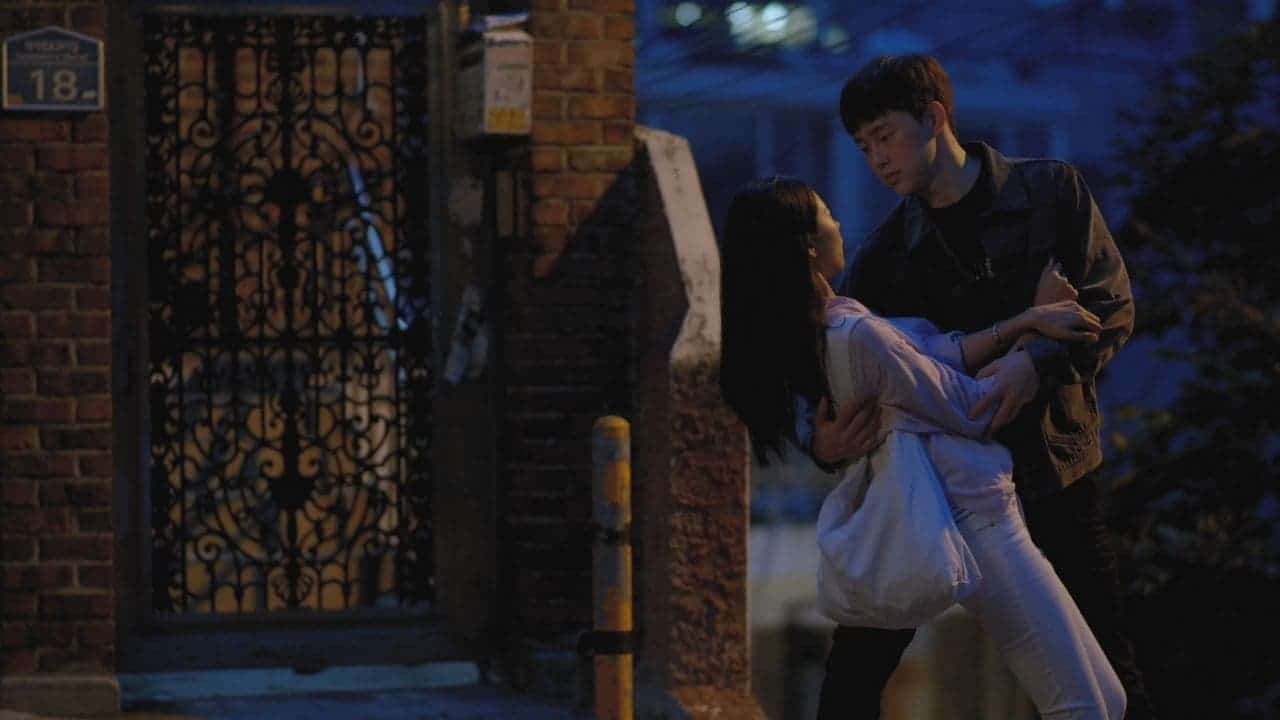Yeon Sang-ho may have not been able to replicate the grand success of his live-action debut “Train to Busan” yet, but you have to hand it to the writer-director for never shying away from trying new challenges and newer genres. After showing much promise in his much acclaimed animated features “King of Pigs” and “The Fake”, he ventured into live-action territory with “Train to Busan”, following that up with with the superhero entry “Psychokinesis” before going back to the world of zombies with “Peninsula”, which may not have lived up to the hype of the original (or even its animated prequel “Seoul Station”), yet ended up being the highest-grossing Korean release in the pandemic inflicted 2020. Yeon would then join hands with Netflix to bring his webtoon “Hellbound” to an OTT series before re-teaming with the streaming giant for his first venture into full-blown sci-fi with “Jung_E”.
“Jung_E” is streaming on Netflix
After Earth has been declared uninhabitable in the 22nd century, most of mankind has moved to various shelters made between the Earth and the moon's orbital planes. A few of these shelters however declare themselves a Republic, attacking Earth and the other shelters, leading to a decades-long civil war between the Republic and the Allied forces of the other shelters and the remaining inhabitants of Earth. One of the heroes of this war for the Allied forces is Commander Yun Jung-yi, a legendary soldier from Earth who loses her life in a battle.
Kronoid, a defence company on Earth, continues to create weapons to assist in the war, the chief of their projects being Jung_E, an elite super soldier powered by AI, created by harnessing the data and memories of Yun Jung-yi. Headed by Yun Seo-hyun, the daughter of Jung-yi who wants the legacy of her mother to live on, the project doesn't quite seem to grasp why their simulations with Jung_E never manage to succeed in saving Jung_E past the point where Yun lost her life and their efforts seem to end up proving futile with the war coming to a seeming end.
Yeon, who once again works off his own script, manages to build a compelling world in his first science fiction, one where AI and data are the most useful commodity. With the way things are progressing today, the future that Yeon paints, or at least some aspects of it, doesn't seem like too a far-fetched a notion. The way the narrative handles the ethicality of the use of AI and the effective cloning of the brain is most interesting and easily the part where it manages to succeed the most. There's also some poignant ideas that it puts forth regarding what sets AI, and by extension robots, and humans apart, but these are concepts that have been explored in more depth and clarity before, notably in works like “Blade Runner”, “I, Robot” or “Ghost in the Shell” or closer to home and recently, in “SEOBOK”, for example.
The feature is also guilty of being a bit too repetitive in its first half, with Kronoid's attempts to isolate the issue with Jung_E's data pattern. For a production that was mostly marketed as a sci-fi actioner, it is also regrettably light on the action part, with only two decent sequences bookmarking the story, both coming either too short or too late in their respective cases. This could be the most lamentable aspect of Yeon's latest, as there is much promise in the way the sequences are set up and executed, with the director having already proven especially adept at handling action set-pieces.
Equally adept is he at the world-building, which is gorgeously realized thanks to the effective use of VFX. It has been a positive leap for the VFX industry in Korean cinema over the past few years and Netflix's latest original from the country is yet another step in the right direction. If the brief glimpses at the space shelters seem inspired from Neil Blomkamp's “Elysium”, the futuristic Earth depicted, in harmonious collaboration between the VFX and cinematography, with industrial and cyberpunk sensibilities is also impressive. This is further appreciable when considering the fact that the production had an estimated budget of only $16 million.
The title of the release may be derived from Kim Hyun-joo's character but make no mistake, the lead here is easily the late, great Kang Soo-yeon, who this ends up being the final film for. This is not a narrative that requires much from its actors, but Kang gets a few dramatic scenes, noticeably the one where she has a heart-to-heart with Jung_E, that she makes the most of, leaving a satisfactory swansong in this posthumous release. Kim Hyun-joo brings an interesting balance to Jung_E, being an adequate blend of both human-like and robotic. Ryu Kyung-soo reteams with Yeon after “Hellbound” to play Kim Sang-hoon, the director of Kronoid who Yun Seo-hyun reports to, but his humorous scenes end up falling mostly flat. Uhm Ji-won too makes a cameo appearance, which is fun but also puzzling in its inclusion.
“Jung_E” ultimately proves to have many ideas, none of which are realised fully. This is frustrating, and despite having a number of interesting things to say that never reach their potential, even the reasonably short runtime of 99 minutes feels like a slog to sit through. Shame, because once again, the inherent talent Yeon Sang-ho has as a director and a writer is on display here. Unfortunately, his quest to find a deserving successor to “Train to Busan” continues.
















